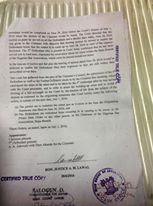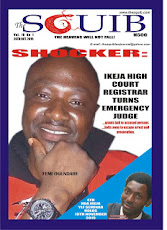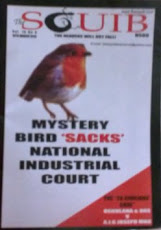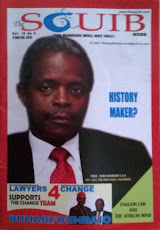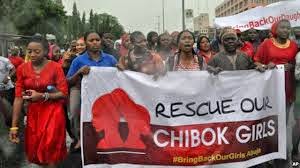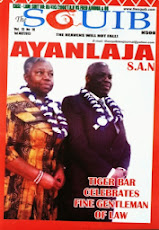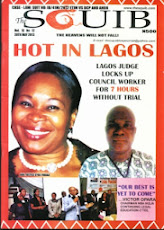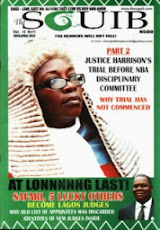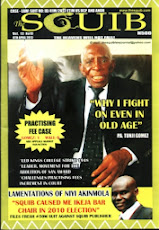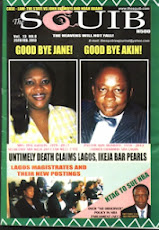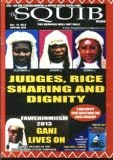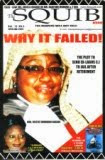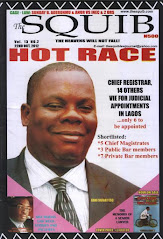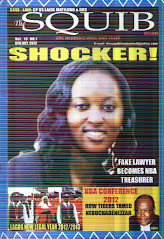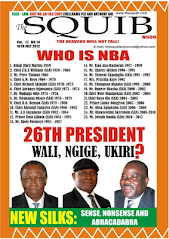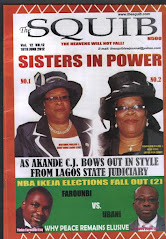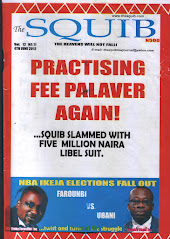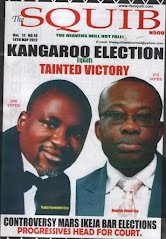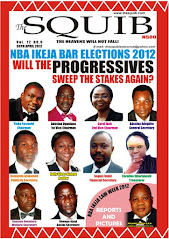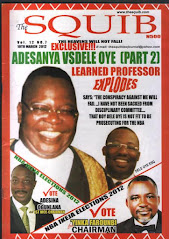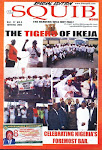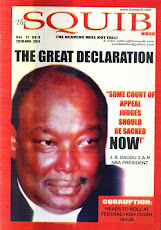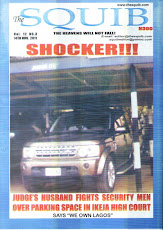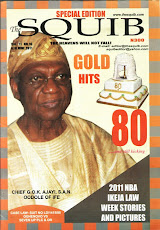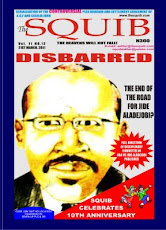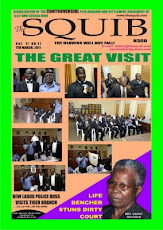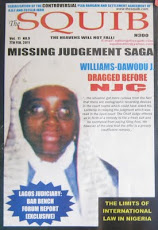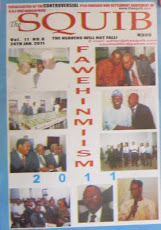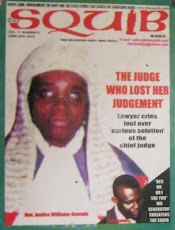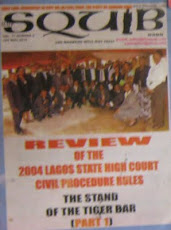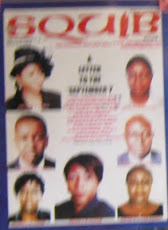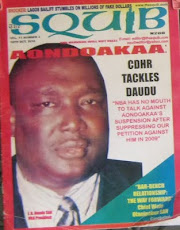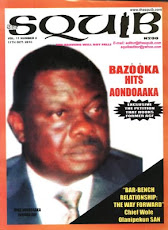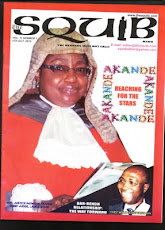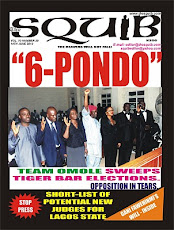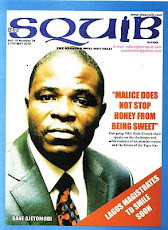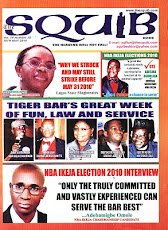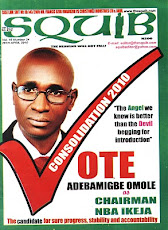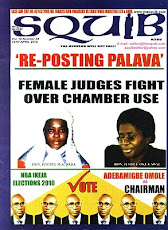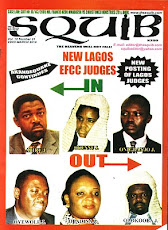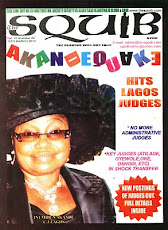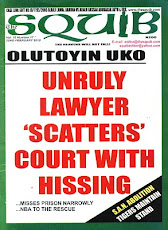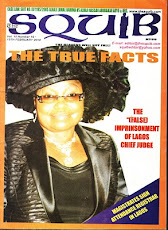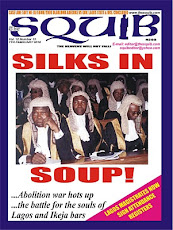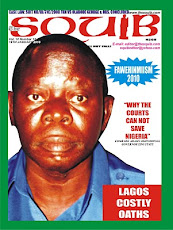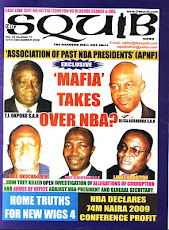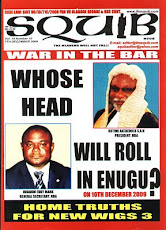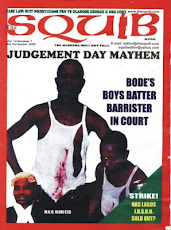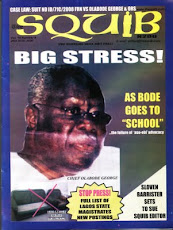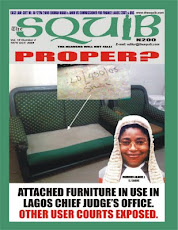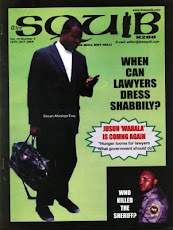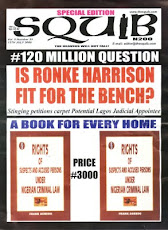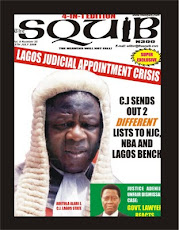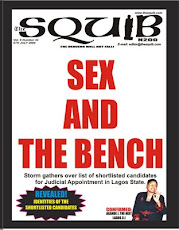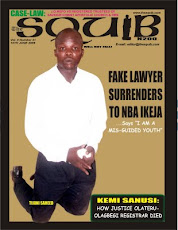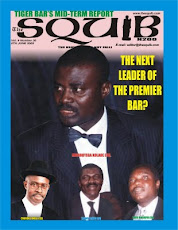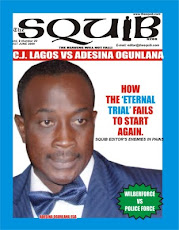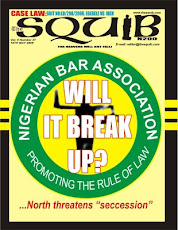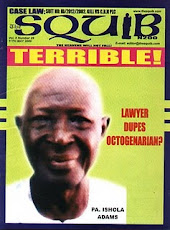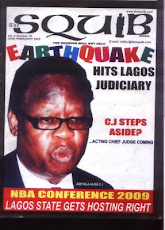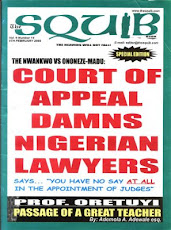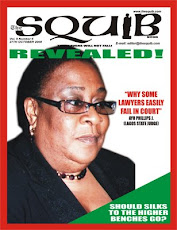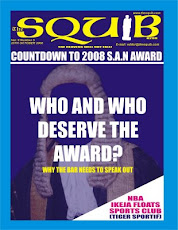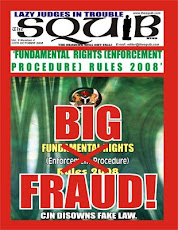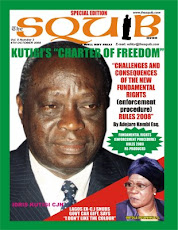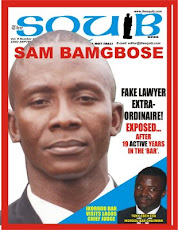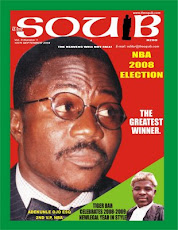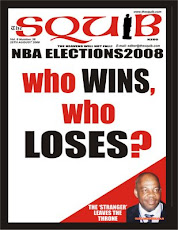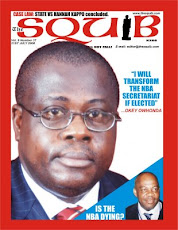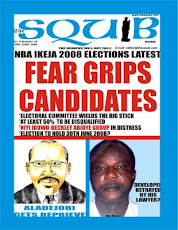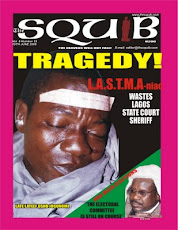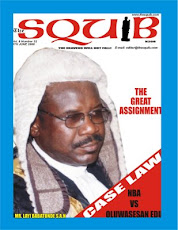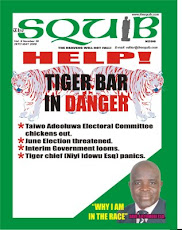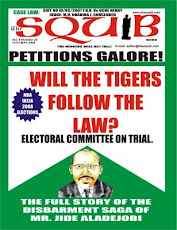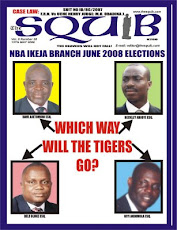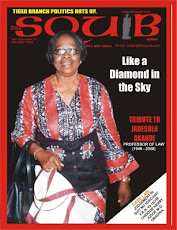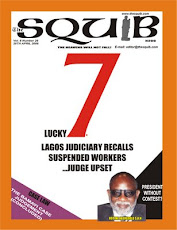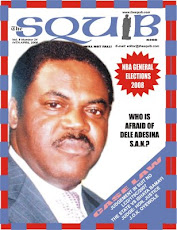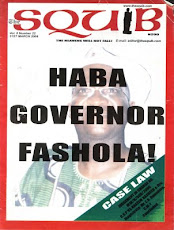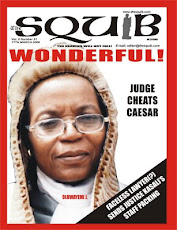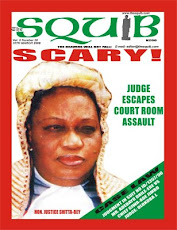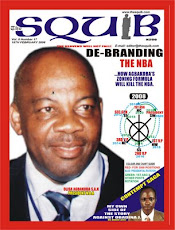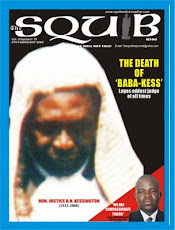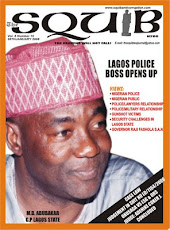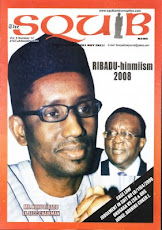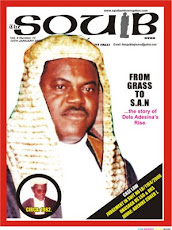SQUIB BAR NEWS
On the surface, the Nigerian Bar Association appears to be doing well, very well indeed. For one, the association is prided as the leading and credible professional association in the country, which many presume gets the ear of the government when it decides to speak.
Also, one often reads in newspapers of how certain specialized sections and fora of the NBA are doing wonderfully well.
Of course the perceived glitter on the NBA may reflect more in August when the Annual Conference holds in Abuja for the sheer number of participants that may turn up. There is safety and perhaps comfort in numbers.
Despite the rosy picture that the NBA presents to the world, there are understandable fears that the beloved association may actually be on its way to the grave. This awful possibility is, however only appreciated by reflective members of the association.
One sign that the NBA may not be in good health is that for years, the number of her branches has remained 88, as if there was a perpetual injunction on the association restraining her from enlarging her coast despite the fact that her membership swells every year with hundreds of new entrants into the legal profession. Another reason the NBA may soon be in a morbid condition is that a vast majority of lawyers, especially the young ones, do not have a sense of belonging to it. The situation is so bad that some young lawyers do not even know what the acronym ‘NBA’ stands for, talk less of caring to attend any meetings or functions of the association or her branches. It is believed among many junior lawyers that the association is unconcerned about the improvement of their welfare, particularly in terms of helping them to get gainful employment and exposure.
To make matters worse, many young lawyers, due to the poor economy of their pockets, consider attendance of certain functions of the association such as workshops, dinners and conferences, a Herculean task in terms of its financial implications.
Complaints about the high cost of participating in NBA functions is not however limited to junior lawyers. Older ones complain too. For example many lawyers are not happy that just as they pay their annual practicing fees, they have to pay under the stamp and seal scheme, before they are issued the items designed primarily to check quackery in the profession.
Lawyers are also complaining about the “exorbitant fees” they have to pay to attend the August conference of the association in Abuja. The fees have been pegged as follows:
1-5 years- N8,000.00
6-10 years- N10,000.00
11-14 years- N12,000.00
15-20 years- N20,000.00
21 years and above- N25,000.00
Senior Advocates of Nigeria- N30,000.00
Many are discomfited by the regimen of fees, which under the Olisa Agbakoba administration has grown steeper than it met it, more so as Agbakoba had boasted so self-assuredly on his way to the presidency in 2006 that he would by virtue of his influence and connections, attract a billion naira to the coffers of the NBA.
By the way, this year’s conference may not attract the kind of crowd of participants that a normal election year pulls. The reason will not just be the high cost of participation, but the fact that the quality and keenness of political contest has been considerably watered down by the absence of competition in the topmost position of the NBA leadership to wit, the presidency.
Unusually for the NBA, her topmost and most glamorous position had been handed over to a single aspirant, Rotimi Akeredolu SAN of the Ibadan branch, more or less on a no-contest platter of gold as no other person filed in nomination for the office.
For the 2008 elections, the office of the president of the association was unofficially zoned to South West Nigeria to produce the candidate. But nobody, at least as at August 2007, bargained that the office would not be contested. Of the three persons popularly believed to be in contention to replace Olisa Agbakoba SAN as president of the NBA come August 31 2008, Funke Adekoya (Mrs) SAN was the first to disappear from the scene.
By January 2007, it became apparent that Adekoya SAN, a former Vice President (2002-2004) of the association and a presidential candidate in the 2006 race, would not participate in the presidential elections of 2008 as she did not deny the claim of her withdrawal from the race. There was no explicit explanation to the expectant public on why Adekoya was no longer in the race as speculated. Some four months later, specifically in May, the second aspirant, Dele Adesina SAN, a former chairman of the prominent Ikeja branch and a former General Secretary of the NBA (2002-2004), abruptly fizzled out of contention. Adesina SAN had succumbed to the curious political scheming of a tribal political caucus (Egbe Amofin Yoruba) to which he belonged, but which preferred not only to support the candidacy of Rotimi Akeredolu SAN for president, but also maintained that they wanted nobody in their fold to contest against him, even though Akeredolu was an overnight son of the Egbe.
Friends of the Egbe’s position of “singular and consensus” candidate for the NBA presidency argue that the approach is to avoid or sharply reduce the huge cost candidates incur in running for the presidency of the NBA.
Critics however disagree on the positive values of the “singular and consensus” candidate approach, claiming that among other things, such a position cannot aid the practice of democracy in the NBA and help the association get the best man for the job or the best from the ‘no contest’ president, since he got the plum job courtesy of the anointing of a “secret college” and not through the support of the generality of voters.
The question may be asked at this juncture; how come that the presidency of the NBA is now of a nature that only very few people consider it attractive enough to contest for? Does the dearth of candidates for the top job of the association not indicate that the association itself is not in a healthy state, otherwise, why should the presidency of a supposed well respected and influential organization fail to attract competition for its biggest position?
Could the dearth of interested candidates be due to the absence of members possessed of abilities adequate to shoulder the burdens of the association’s presidency – considering the fact that the Egbe Amofin Yoruba has only two of her members interested in the NBA presidency, while no other group of lawyers or individual in South West Nigeria ventured to express interest in the post despite that the region can easily boast of a near half of all the legal practitioners in Nigeria. The Squib asks, Is the NBA dying?
Saturday, August 2, 2008
Subscribe to:
Posts (Atom)


